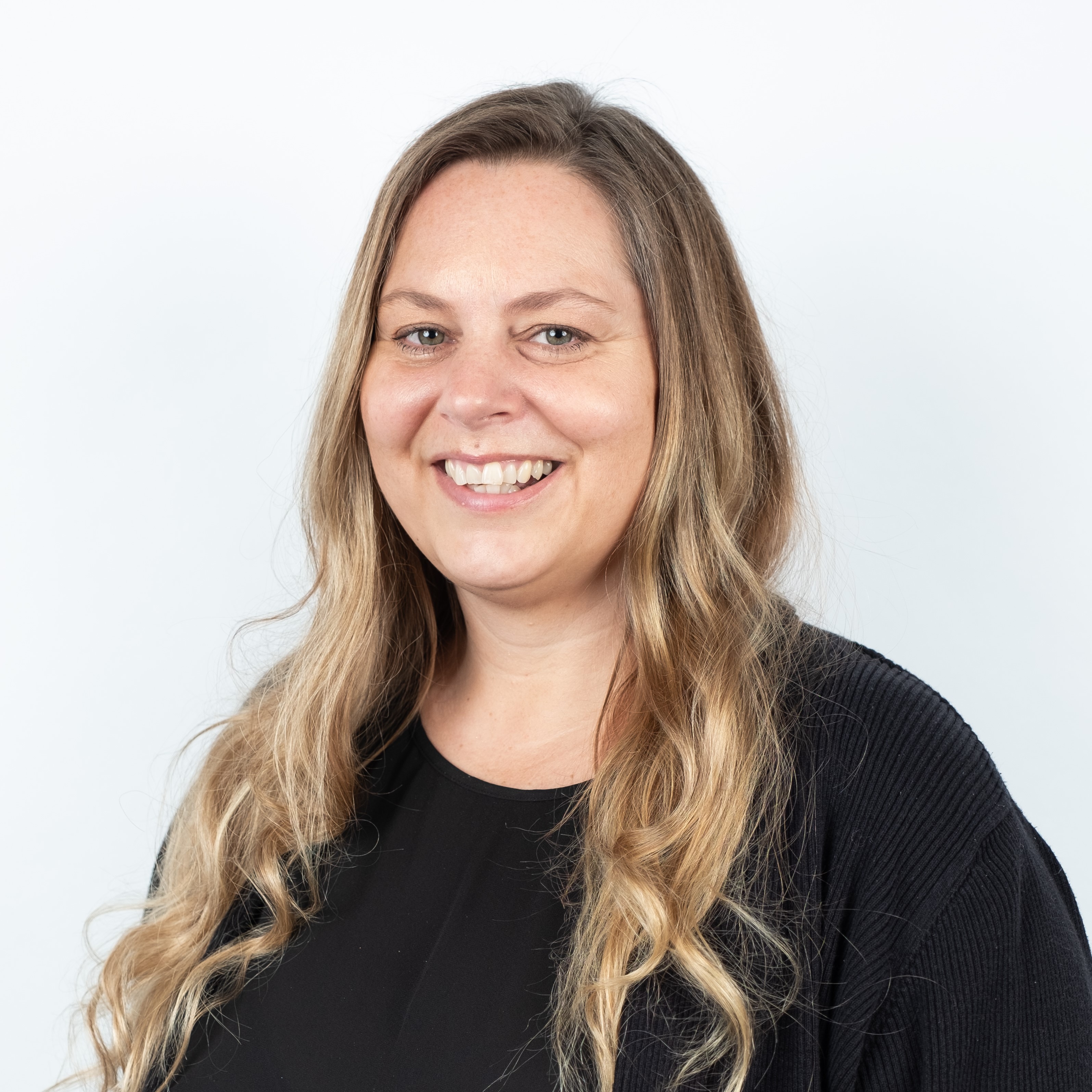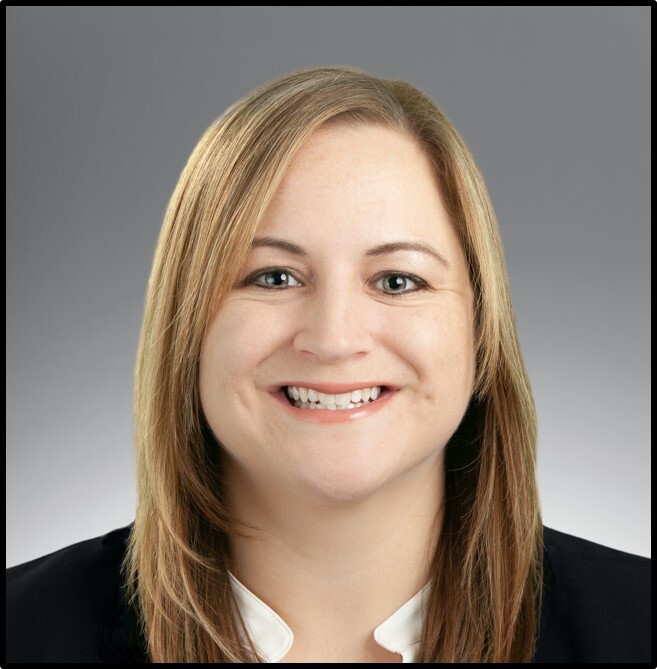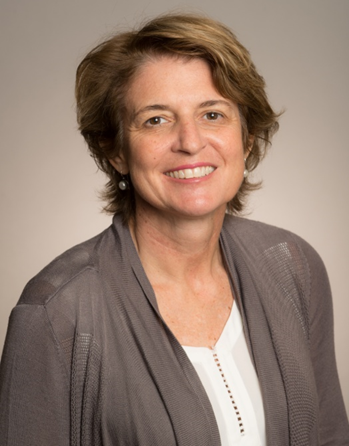
Catalog Advanced Search
-
Contains 3 Component(s), Includes Credits Includes a Live Web Event on 11/20/2025 at 1:00 PM (EST)
This 3-hour training will provide mental health professionals with an understanding of telehealth delivery of evidence-based trauma-focused treatment for children and adolescents. Topics covered will include: (1) specific tailoring of trauma-focused treatment for a telehealth delivery format, (2), demonstration of how to utilize electronic resources to deliver trauma-focused treatment via telehealth and (3) procedures and workflow considerations for telehealth delivery trauma-focused treatment.

NCA Learning: NCA Training Refund Policy
Description: This 3-hour training will provide mental health professionals with an understanding of telehealth delivery of evidence-based trauma-focused treatment for children and adolescents. Topics covered will include: (1) specific tailoring of trauma-focused treatment for a telehealth delivery format, (2), demonstration of how to utilize electronic resources to deliver trauma-focused treatment via telehealth and (3) procedures and workflow considerations for telehealth delivery trauma-focused treatment. This training has been approved for 2.5 CEs.
Learning Objectives:
- Participants will be able to describe modifications needed to implement trauma-focused treatment for children and adolescents via telehealth
- Participants will be able to understand the ethics surrounding distance counseling
- Participants will be able to describe techniques and resources to provide engaging trauma treatment for children via telehealth
Agenda
1:00 - 1:15
Introductions & Overview
1:15 - 1:30
Background on telehealth- barriers, research, model
1:30 - 1:45
Telehealth logistics
1:45-2:00
Engagement & Clinician & Family Considerations
2:00-2:20
Emergency Protocols & Telehealth Problem Scenarios
2:20 - 2:30
BREAK
2:30-2:45
EBT’s over Telehealth
2:45-3:45
Engaging Techniques for Trauma-Focused Treatment via Telehealth
3:45-4:00
Resources, Questions, Wrap Up

Paula Condol, M.S., LPCC
Executive Director
Dakota Children's Advocacy Center
Paula Condol obtained her master’s degree in Community Counseling in 1996 from St. Cloud State University and is a Licensed Professional Clinical Counselor in the state of ND and a Certified Supervisor. She has been the Director of the Dakota Children's Advocacy Center for 22 years, and worked as an adjunct faculty member at the University of Mary Masters of Counseling program for 9 years. Paula provides evidence-based treatment to children and their families affected by trauma and abuse and trains others in the field on utilizing these evidence-based practices.

Nicola Herting, PhD
Mental Health Strategic Director
Red River Children's Advocacy Center
Nicole Herting is a Licensed Clinical Psychologist who specializes in working with children and families impacted by trauma. Dr. Herting is the Clinical Director of the Sanford Traumatic Stress Treatment Center, Mental Health Strategic Director at Red River Children’s Advocacy Center, an Adjunct Research Scientist for Sanford and the Treatment Collaborative for Traumatized Youth, and an Adjunct Professor in the University of North Dakota Clinical Psychology Program. Dr. Herting has extensive training in trauma and child abuse and is experienced in providing evidence-based, trauma-specific screening, assessment, treatment, trainings, and consultation. Dr. Herting is involved in several statewide evidence-based trauma treatment and screening implementation initiatives in North Dakota.
-
Register
- Non-member - Free!
- Member - Free!
- More Information
-
Contains 6 Component(s) Includes Multiple Live Events. The next is on 11/19/2025 at 2:00 PM (EST)
The Trauma-Focused Cognitive Behavioral Therapy (TF-CBT) Basic training is appropriate for Master’s level therapists and above or those who are working on a Master’s degree and providing mental health services under the supervision of a licensed professional. TF-CBT has more data (25 + randomized trials and a number of quasi-experimental studies) to support the model’s effectiveness in helping children and families overcome the impact of child abuse and trauma than any other therapy model available. TF-CBT has been recognized by the federal government as a model program and is included on numerous websites for evidence-based practices.

NCA Learning: NCA Training Refund Policy
This live training with Ashley Fiore, LCSW, includes two required learning sessions; Learning Session 1 is December 2, 4, & 9 from 11:00 am - 5:00 pm EST; Learning Session 2 is one day and will be held Spring 2026, from 11:00am - 5:00pm EST.
We will also be having a Welcome Call on Wednesday November 19, 2025 from 2:00pm-3:00pm Eastern to orient you to training and help with case selection questions.
This will be an interactive and participatory virtual training experience with pre-work and action period assignments that build participants’ skills at implementing TF-CBT with children and families with fidelity and clinical competence. Clinicians will receive a training packet which will be mailed to them, private online access to over 800 downloadable clinical resources for TF-CBT, access to a private TF-CBT Clinical Discussion Forum with other participants and includes 12 group consultation calls.
Attendees should have an active caseload appropriate for TF-CBT and be ready to apply the model. Supervisors are welcome to attend training; however, if they are not carrying their own active TF-CBT cases, they will not meet criteria to seek national certification.
There is a cap of 50 attendees for this training. You must be paid in full to count toward the participation cap. It is strongly recommended you pay with credit card to ensure your spot is secure. If you plan to pay by check, you must email Jami Bolton, jbolton@nca-online.org, to let us know you are sending a check. The check must be received by Friday November 25, 2025.
If registration is full, this means that our capacity has been met. Please email jbolton@nca-online.org, and we will add you to the waiting list.
The member cost for the training is $599 and includes 12 consultation calls. You may use NCA grant funds for this training. Your spot will not be reserved until payment is received. If you are paying by check, please mail ASAP to ensure your spot.
To pay by check, select "check" under payment method during check out. After checking out, please save your invoice or email confirmation.
The Trauma-Focused Cognitive Behavioral Therapy (TF-CBT) training is appropriate for Master’s level therapists and above or those who are working on a Master’s degree and providing mental health services under the supervision of a licensed professional. TF-CBT has more data (25 + randomized trials and a number of quasi-experimental studies) to support the model’s effectiveness in helping children and families overcome the impact of child abuse and trauma than any other therapy model available. TF-CBT has been recognized by the federal government as a model program and is included on numerous websites for evidence-based practices.
At the conclusion of this TF-CBT training, participants will be able to:
- Evaluate which cases would benefit from TF-CBT and successfully engage families in treatment
- Create session agendas and structure TF-CBT sessions to meet fidelity standards
- Explain how to integrate gradual exposure into every TF-CBT session
- Support children and teens in developing skills that enhance coping and symptom reduction in the aftermath of trauma
- Support caregivers in developing coping skills and parenting strategies for responding to children’s therapeutic needs in the aftermath of trauma
- Apply and implement the PRACTICE components of TF-CBT with families impacted by trauma
Upon completion of the virtual training, participants will have most of the requirements for formal certification in TF-CBT (obtained through the Trauma-Focused Cognitive Behavioral Therapy National Therapist Certification Program). The Virtual Training and group calls count toward the requirements for national certification in TF-CBT. However, a few additional guidelines for national certification must be met as established by the developers. (For more information, please see www.tfcbt.org). Training participants are required to have a web camera (i.e., on a laptop computer or cell phone) in order to participate in the TF-CBT 4-day training via web-platform.
The training will be offered over 4 days including:
3-day Learning Session 1:
December 2, 2025: 11:00 am - 5:00 pm EDT
December 4, 2025: 11:00 am - 5:00 pm EDT
December 9: 11:00 am - 5:00 pm EDT
1-day Learning Session 2:
Spring 2026; 11:00 am - 5:00 pm EDT
Pre-Requisite: TF-CBTWeb *please note that there is a $35 fee that is NOT covered as part of your registration and which is paid to the Medical University of South Carolina through TF-CBTWeb.
Completion of TF-CBT Web2.0 is required as a prerequisite to the virtual TF-CBT training and proof of completion should be submitted to Jami Bolton at NCA 3 days prior to Day 1 of the virtual training. Email your certificate of completion to jbolton@nca-online.org
Registration:
To register for this training, you will need an NCA Engage account. If you do not have one, visit NCA Engage Getting Started page for step-by-step instructions to request an NCA Engage account. The account request form will include a field that asks for an Organizational ID number. The Organizational ID number will inform us that the person signing into NCA Engage is employed at or partnered with a member organization. Please email membership@nca-online.org if you need your Organizational ID. If you are not employed at or partnered with a member organization, please enter MH24 as your Organizational ID for non-member access to NCA Engage. Non-member access will provide access to the training.
** As a reminder, if you are paying by check, your training registration is incomplete, and your spot will not be reserved, until your check is received and is manually approved by our staff. Your name and TF-CBT Intro must be on the check memo or on a note with your check, otherwise it will not be approved. Do not mail checks to the former NCA office address, please use the PO Box listed above.
If you need any accommodations for this training, please reach out to Jami Bolton, jbolton@nca-online.org
By registering for this training, I agree to the following:
-I will complete all Pre-training assignments and email proof of my certificate of completion for TF-CBT Web 2.0 to Jami Bolton, jbolton@nca-online.org
-I will provide brief monthly data regarding my caseload to meet funder requirements; this enables NCA to offer training at a reduced rate for trainees
-Successful completion of TF-CBT Training includes: participating in all training activities, including didactic portion and interactive breakout activities and discussions; having my camera on during training and consultation calls; remaining in a stationary, private space during training and consultation; attending and participating in at least 75% of all scheduled group consultation calls (9 of 12), presenting my own TF-CBT treatment case during group consultation twice.
For any questions or concerns related to this training, or your participation, please contact Jami Bolton, jbolton@nca-online.org

Ashley Fiore, MSW, LCSW
National Trainer
National Children's Alliance Institute for Better Mental Health Outcomes
Ashley Fiore has worked with CACs throughout her professional career as a clinician, clinical director, program manager, trainer, and consultant. She has assessed and treated over 2,000 children and families using Trauma-Focused Cognitive Behavioral Therapy (TF-CBT) and Alternatives for Families Cognitive Behavioral Therapy (AF-CBT). Prior to joining NCA, Ashley served as clinical faculty for the North Carolina Child Treatment Program, where she trained TF-CBT and provided individual and group consultation to clinicians using a learning collaborative model. She has expertise in the implementation and dissemination of evidence-based, trauma focused, child/family interventions. Ashley is a certified trainer in TF-CBT and AF-CBT and has provided training/consultation on trauma-informed comprehensive clinical assessments, trauma-related problematic sexual behaviors in children, and implementation support of evidence-based treatment models. She received her MSW from UNC-Chapel Hill, and enjoys gardening, making pottery, and hiking in her free time.
-
Register
- Non-member - $699
- Member - $599
- More Information
-
Contains 2 Component(s) Includes a Live Web Event on 11/19/2025 at 1:00 PM (EST)
Safety Planning/Clarification/Reunification

NCA Learning: NCA Training Refund Policy
This webinar will take place on November 19, 2025 from 1:00pm-4:00pm
Description coming soon!
*This training is pending approval for NASW and NBCC CEs

Geoff Sidoli, MSW, LCSW
Coordinator for Mental Health Programs
National Children’s Alliance
Geoff Sidoli, LCSW, is the current Coordinator for NCA’s Institute for Better Mental Health Outcomes. He assists CACs around the country developing, implementing, and sustaining mental health services. Prior to coming to NCA, Geoff was the executive director of a CAC in Asheville, NC where he supervised a clinical department that assessed and treated trauma and problematic sexual behavior (PSB) utilizing multiple evidence-based/supported models, including a PSB model that he developed. Geoff has a broad history of work with trauma and sexual violence for over 30 years including the assessment and treatment of individuals that have caused sexual harm. He speaks regionally and nationally on the topic of sexual abuse, assessment and treatment. He served on several state/national boards and work groups that focus on intervention and prevention of sexual harm and trauma. Geoff co-chairs NCA’s youth with problematic sexual behaviors work group and sits on ATSA’s child and adolescent committee as well as the ethic’s committee.
-
Register
- Non-member - $199
- Member - $149
- More Information
-
Register
-
Contains 6 Component(s) Includes Multiple Live Events. The next is on 10/28/2025 at 12:00 PM (EDT)
Alternatives for Families: A Cognitive-Behavioral Therapy (AF-CBT; www.afcbt.org), is an intervention to improve family relationships for those experiencing high conflict/coercion, harsh/punitive discipline, child physical abuse, and/or child behavior problems.

NCA Learning: NCA Training Refund Policy
This live virtual training will take place October 28, 30, November 4, and 6, from 12:00pm-4:00pm EDT with Ashley Fiore, MSW, LCSW. This will be an interactive and participatory training experience with pre-work and action period assignments that build participants’ skills at implementing AF-CBT. This training has been approved for 14 CEs through NASW and NBCC.
Attendees should have an active caseload appropriate for AF-CBT and be ready to apply the model. Supervisors are welcome to attend training. If supervisors are not carrying their own active AF-CBT cases, we will work with them to meet the training requirements.
Alternatives for Families: A Cognitive-Behavioral Therapy (AF-CBT; www.afcbt.org), is an intervention to improve family relationships for those experiencing high conflict/coercion, harsh/punitive discipline, child physical abuse, and/or child behavior problems.Alternatives for Families: A Cognitive-Behavioral Therapy (AF-CBT) is a trauma-informed, evidence-based intervention designed to improve the relationship between children and their caregivers by addressing individual and family problems relating to:
• Family conflicts
• Behavior problems, including physical aggression
• Anger and verbal aggression, including emotional abuse
• Harsh physical discipline, physical aggression, or child physical abuse, or
• Child trauma-related symptoms secondary to any of the aboveThese patterns may be shown by an individual caregiver or a child/adolescent, and/or by the family. Therefore, AF-CBT targets the caregiver, child/adolescent, and the larger family context.
AF-CBT involves three phases of treatment:
1) Engagement and Psychoeducation, 2) Individual skills building, 3) Family applications.Who is Appropriate for AF-CBT?
AF-CBT is appropriate for a broad range of families. The following general criteria have been developed to facilitate the identification of families who may benefit from this intervention.BACKGROUND CRITERIA
• A child, age 5-17, can participate now or soon
• A caregiver (e.g., biological, adoptive, foster, or kin) can participate now or soon
• Both caregiver and child have an adequate capacity or repertoire to learn/benefit from AF-CBT
CLINICAL CRITERIA
• The Family has frequent conflict(s) and/or arguments OR
• A Caregiver shows anger (hostility), uses physical force/discipline (coercion), and/or has allegation/history of child physical abuse OR
• A Child shows anger, has behavior problems (e.g., defiance, aggression, explosiveness), has trauma symptoms/PTSD after physical discipline/abuse, and/or has prior exposure to harsh discipline/physical abuse
A case is eligible if ALL 3 Background Criteria and 1 Clinical Criterion are met.Objectives:
1. Describe the intervention model and its content to families in a manner that engages and motivates treatment participation.
2. Implement specific techniques to decrease parent and child aggression, family conflict, and child PTSD symptoms related to physical violence (e.g., complete no-force agreement, safety planning, imaginal exposure).
3. Initiate discussions about abusive/aggressive experiences with children and caregivers and follow up with social skills training, social support planning, positive family communication, problem-solving routines, and child behavior management training.
Providers
Prospective AF-CBT trainees must be mental health professionals with a Master's degree or higher. Trainees are asked to commit to implementing AF-CBT with at least 2 families during the course of the training year so they should have an active caseload ready to apply the model.
AF-CBT should be conducted by individuals who have been formally trained in the model and who are familiar with the content, methods, assessments, and fidelity tools that are required to ensure effective implementation.Data Collection: This training is offered at a greatly reduced cost. Participants are required to submit monthly data on clients served. More information will be provided.
Pre-Requisite:
There is a free 2.5 hour pre-requisite video course, “Foundations of AF-CBT” which must be completed prior to training. You may access this here https://learn.nctsn.org/enrol/...CE’s are provided for the pre-requisite course through NCTSN.org. Please send your certificate documenting completion to Jami Bolton, jbolon@nca-online.org
There is a cap of 50 attendees for this training. You must be paid in full to count toward the participation cap. It is strongly recommended you pay with credit card to ensure your spot is secure. If you plan to pay by check, you must email leadershipconference@nca-online.org to let us know you are sending a check. The check must be received by July 12, 2025.
If registration is full, this means that our capacity has been met. Please email leadershipconference@nca-online.org and we will add you to the waiting list.
The cost for the training is $1,299 and includes 4 training days, 12 consultation calls, and the AF-CBT Session Guide, Third Edition, Revised. A Spanish language session guide is available upon request. You may use NCA grant funds for this training. Your spot will not be reserved until payment is received. If you are paying by check, please mail ASAP to ensure your spot.
To pay by check, select "check" under payment method during check out. After checking out, please save your invoice or email confirmation.

Ashley Fiore, MSW, LCSW
National Trainer
National Children's Alliance Institute for Better Mental Health Outcomes
Ashley Fiore has worked with CACs throughout her professional career as a clinician, clinical director, program manager, trainer, and consultant. She has assessed and treated over 2,000 children and families using Trauma-Focused Cognitive Behavioral Therapy (TF-CBT) and Alternatives for Families Cognitive Behavioral Therapy (AF-CBT). Prior to joining NCA, Ashley served as clinical faculty for the North Carolina Child Treatment Program, where she trained TF-CBT and provided individual and group consultation to clinicians using a learning collaborative model. She has expertise in the implementation and dissemination of evidence-based, trauma focused, child/family interventions. Ashley is a certified trainer in TF-CBT and AF-CBT and has provided training/consultation on trauma-informed comprehensive clinical assessments, trauma-related problematic sexual behaviors in children, and implementation support of evidence-based treatment models. She received her MSW from UNC-Chapel Hill, and enjoys gardening, making pottery, and hiking in her free time.
-
Register
- Non-member - $1,400
- Member - $1,299
- More Information
-
Register
-
Contains 6 Component(s) Includes Multiple Live Events. The next is on 10/14/2025 at 11:00 AM (EDT)
Advanced TF-CBT PSB Intensive (Children 12 and Under) Learning Session 1 includes 4 training days, October 14, 16, 21 & 23, 2025 Learning Session 2 includes 2 training days: DATES TBD This will be an interactive and participatory training in person and virtual training experience with pre-work and action period assignments that build participants’ skills at implementing a PSB application TF-CBT with children aged 12 and under and families with fidelity and clinical competence

NCA Learning: NCA Training Refund Policy
Advanced TF-CBT PSB Intensive (Children 12 and Under)
This 10-month Advanced Training Intensive includes two learning sessions with Ashley Fiore, LCSW, and Geoff Sidoli, LCSW
Learning Session 1 October 14, 16, 21 & 23, 202511:00am-5:30pm EASTERN
Learning Session 2 DATES TBD
26 CEs have been approved by NBCC and NASW. This will be an interactive and participatory virtual training experience with pre-work and action period assignments that build participants' skills at implementing a PSB application of TF-CBT with children aged 12 and under and their families with fidelity and clinical competence.
Training content includes: Client identification and standardized assessment of children and their caregivers; interpretation, case conceptualization, record review practice; structured interviewing of children and caregivers, developing individualized treatment goals and safety plans, techniques for engaging caregivers who are in dissent/denial, PRACTICE component application of TF-CBT, and clinical skill development for working with this population. Training will include case application of TF-CBT using an evolving case study with video demonstration of skills. Clinicians will receive access to download a training packet, private online access to over 800 downloadable clinical resources for TF-CBT, access to a private TF-CBT PSB Clinical Discussion Forum with other participants and includes 11 group consultation calls co-facilitated by the trainers. Clinicians must attend at least 8 of 11 calls to successfully complete training.
Cost:
Member: $1,250/person
Non-Member: $1,350
NOTE: By registering for this training, I agree to the following:
- I have completed Basic TF-CBT Training AND at least 9 of 12 group consultation calls with a developer-endorsed, national trainer
*Please provide proof of training and group call completion and/or national certification by emailing this to Jami Bolton at jbolton@nca-online.org before the start of training, otherwise you will not be allowed to participate
I commit to sharing information about my readiness, familiarity, willingness, and ability to serve this population pre-training and post-training. I commit to completing all pre-training and action period assignments
- I commit to sharing information about my readiness, familiarity, willingness, and ability to serve this population pre-training and post-training
- I will participate in the Welcome Call
- I will participate in at least 8 of 11 scheduled Group Consultation Calls
- I commit to submitting de-identified client data related to the number of children who receive treatment, reduction in clinical symptoms, and successful discharges
Attendees should have an active caseload appropriate for TF-CBT PSB and be ready to apply the model with at least 2 children. Clinical supervisors are welcome to attend; however, if supervisors are not delivering the treatment during the consultation call phase, they will not be able to attend consultation calls. In order to be considered fully trained, participants must complete a minimum of 8 consultation calls and deliver the treatment to two children and their caregivers.
At the conclusion of this TF-CBT training, participants will be able to:
- Evaluate which cases would benefit from a PSB application of TF-CBT for children aged 12 and under
- Use record review, assessment, and structured interviewing techniques to develop individualized treatment goals and collaborative safety plans.
- Successfully engage appropriate cases in treatment, including caregivers in dissent/denial
- Create session agendas to structure TF-CBT sessions to meet fidelity standards
- Support children and teens in developing skills that enhance coping and symptom reduction in the aftermath of trauma
- Support caregivers in developing coping skills and parenting strategies for responding to children’s therapeutic needs in the aftermath of trauma
- Apply and implement the PRACTICE components of TF-CBT with families impacted by trauma and children exhibiting problematic sexual behaviors
For any questions, please reach out to Jami Bolton, jbolton@nca-online.org

Ashley Fiore, MSW, LCSW
National Trainer
National Children's Alliance Institute for Better Mental Health Outcomes
Ashley Fiore has worked with CACs throughout her professional career as a clinician, clinical director, program manager, trainer, and consultant. She has assessed and treated over 2,000 children and families using Trauma-Focused Cognitive Behavioral Therapy (TF-CBT) and Alternatives for Families Cognitive Behavioral Therapy (AF-CBT). Prior to joining NCA, Ashley served as clinical faculty for the North Carolina Child Treatment Program, where she trained TF-CBT and provided individual and group consultation to clinicians using a learning collaborative model. She has expertise in the implementation and dissemination of evidence-based, trauma focused, child/family interventions. Ashley is a certified trainer in TF-CBT and AF-CBT and has provided training/consultation on trauma-informed comprehensive clinical assessments, trauma-related problematic sexual behaviors in children, and implementation support of evidence-based treatment models. She received her MSW from UNC-Chapel Hill, and enjoys gardening, making pottery, and hiking in her free time.

Geoff Sidoli, MSW, LCSW
Coordinator for Mental Health Programs
National Children’s Alliance
Geoff Sidoli, LCSW, is the current Coordinator for NCA’s Institute for Better Mental Health Outcomes. He assists CACs around the country developing, implementing, and sustaining mental health services. Prior to coming to NCA, Geoff was the executive director of a CAC in Asheville, NC where he supervised a clinical department that assessed and treated trauma and problematic sexual behavior (PSB) utilizing multiple evidence-based/supported models, including a PSB model that he developed. Geoff has a broad history of work with trauma and sexual violence for over 30 years including the assessment and treatment of individuals that have caused sexual harm. He speaks regionally and nationally on the topic of sexual abuse, assessment and treatment. He served on several state/national boards and work groups that focus on intervention and prevention of sexual harm and trauma. Geoff co-chairs NCA’s youth with problematic sexual behaviors work group and sits on ATSA’s child and adolescent committee as well as the ethic’s committee.
-
Register
- Non-member - $1,350
- Member - $1,250
- More Information
-
Contains 10 Component(s), Includes Credits Includes Multiple Live Events. The next is on 09/11/2025 at 1:00 PM (EDT)
Join your CAC Executive Director (ED) colleagues for this exciting training opportunity. CAC EDs lead the charge for positioning CACs to meet NCA’s Mental Health Accreditation Standards. Many ED’s do not have a mental health background which can create challenges. NCA is excited to announce this training opportunity for EDs to learn about developing and sustaining high quality mental health programs at your CACs.
NCA Learning: NCA Training Refund Policy
Join your CAC Executive Director (ED) colleagues for this exciting training opportunity. CAC EDs lead the charge for positioning CACs to meet NCA’s Mental Health Accreditation Standards. Many ED’s do not have a mental health background which can create challenges. NCA is excited to announce this training opportunity for EDs to learn about developing and sustaining high quality mental health programs at your CACs.
About The Project
A total of 50 Executive Directors from CACs will be accepted into this training. Not only will you learn about mental health, but you will also be able to help shape future iterations of the training through feedback to the trainers. In 2021, NCA convened a Mental Health Standard Revision Committee of 20 individuals from Regional CACs, CACs, and subject-matter experts to make recommendations for the new Mental Health standard that went into effect in January 2023 to support the expanded NCA mission of healing for all children seen at CACs. This training will support CAC Executive Directors in the successful implementation of the 2023 NCA Mental Health standard.
The training will be delivered in three-3 hour live interactive webinars. There will be approximately 1-2 hours of outside work to prepare for the next webinar. It is important that you complete the work between webinars to be an effective participant with your colleagues during the interactive portion of the webinars.
Training dates:
Three – 6 hour live interactive webinars to be held the following dates from 1:00-2:30PM EST.
- September 11, 2025: Integrating the NCA MH Accreditation Standard into Practice at Your CAC
- September 25, 2025: Mental Health Implementation Roadmap: A Model for Helping Kids Heal
- October 9, 2025: Using Screening to Identify Children Who Need Mental Health Services
- October 23, 2025: The Senior Leader as an Administrative Supervisor for Clinical Staff: Policies, Procedures and Other Supports
- November 6, 2025: Mental Health Resources – Onsight/Linkage and Utilizing Interns
- November 20, 2025: Strengthening Mental Health Services at Your CAC
What You’ll Learn
Through this training, EDs will learn:• NCA’s 2023 Mental Health Accreditation Standard and strategies for successful implementation at your CAC.
• Mental Health Roadmap to meeting the Accreditation Standard and providing quality mental health services for children and families served.
• Evidence-Based Treatments (EBTs) recognized by NCA and training requirements.
• Conducting a community-based mental health gap analysis to determine areas of concern in your CAC’s mental health response and what EBT is needed to add to your community/CAC’s menu of services.
• The importance of collecting and documenting of accurate data and how that data can be used to inform service delivery and to seek funding for mental health services.
• The MDT’s role in mental health service delivery.
• The role of the Victim Advocate in engaging children and families in care.
• Mental health collaborations to increase the number of linkage agreements.
• The importance of collaboration between VAs and MH providers in the delivery of mental health services.
• Opportunities to collaborate with other EDs from CACs across the country and to learn about strategies that other CACs are using to successfully meet the NCA MH Accreditation Standard
If you would like a hard copy of the workbook, please send Jami, jbolton@nca-online.org, your shipping address no later than Friday October 4th
Executive Director Project Requirements
This project is designed for Executive Directors at CAC who are interested in furthering their knowledge about the NCA Mental Health Accreditation Standard, evidence-based practices and planning and sustaining high quality mental health programs. Executive Directors are defined as having a leadership role including responsibility for the outcome of services to children and families served by the CAC. This professional possesses the administrative responsibility within the organization with authority to make systematic changes (policies, procedures, budgeting). NOTE: Senior Leaders who possess the administrative responsibility within the CAC with authority to make system changes (policies, procedures, budgeting) are welcome to register.
Complete Pre-Work:
• The CAC Directors Mental Health Guide as pre-work: https://www.nctsn.org/resource... The information in this guide will provide a foundation for this training and can serve as a resource to reinforce learning and the implementation of learning.
• There will be additional resources provided to support learning as well as the implementation of that learning within your CAC and MDT.
Additional Training Requirements:
• Complete tasks between webinars to prepare yourself for the next training.
• Complete training surveys to contribute to strengthening future ED training.
Attendance and interactive participation are necessary to the success of your learning and to support other participants as they seek to learn from each other.
The trainers will be available to answer any questions you might have via email both before and during the training.

Michelle Miller
Director, NCA Institute for Better Mental Health Outcomes
National Children's Alliance
Michelle Miller, PhD, LCSW, LCPC, is the Director of NCA’s Institute for Better Mental Health Outcomes. In addition to her 8 years at NCA, she nearly 3 decades of experience working in the child welfare field and over 20 years’ experience as a mental health provider. Dr. Miller spent 15 years as the founding director of NCA’s first accredited CAC in Montana and was the founding board chair for the Montana State Chapter of NCA. Michelle has over 20 years’ experience providing training and supervision to mental health practitioners. Since joining the NCA team in 2016, Michelle has worked with the Yale Child Study Center on the implementation of Child and Family Traumatic Stress Intervention in CACs. Michelle also works with Baylor University on training clinicians in evidenced-based assessment. Michelle worked with the University of Oklahoma Health Sciences Center as a co-developer of a curriculum for victim advocates on engaging families in mental health care and provides national trainings on the topic. Michelle is the co-developer of a training curriculum for CAC executive directors on mental health. Michelle is the co-author of a chapter on Evidence-Based Mental Health Services for Child Victims of Maltreatment in the book Child Sexual Abuse: Practical Approaches to Prevention and Intervention that will be published by the Child Welfare League of America in April 2023.

Libby Ralston
Director Emeritus
Dee Norton Child Advocacy Center
M. Elizabeth “Libby” Ralston, Ph.D. was the founding director of the Dee Norton Child Advocacy Center, an accredited Children’s Advocacy Center located in Charleston, SC until 2012 and now serves as the Director Emeritus. Dr. Ralston served on the National Children’s Alliance (NCA) Board of Directors, on the NCA mental health standard revision committee, the NCA Mental Health Implementation committee and participated in the partnership between NCA and NCTSN to develop the CAC Director’s Guide to Mental Health services. Libby currently serves as a training and curriculum development consultant on the NIMH Family Navigator (E3) grant, a partnership between NCA and the University of Oklahoma. In addition, she is a faculty member of Project BEST, is on the South Carolina Foster Care Health Advisory Committee and is the Chair of the South Carolina Children’s Justice Act Task Force.
lralston0391@gmail.com
-
Register
- Member - $225
- More Information
-
Contains 3 Component(s), Includes Credits Includes a Live Web Event on 09/03/2025 at 2:00 PM (EDT)
This webinar will provide CAC and Chapter staff with an overview of implementing the new Outcome Measurement System (OMS) mental health services survey as a part of engaging caregivers in the overall therapeutic process.
This webinar will provide CAC and Chapter staff with an overview of implementing the new Outcome Measurement System (OMS) mental health services survey as a part of engaging caregivers in the overall therapeutic process.
Webinar participants will hear from CAC staff and mental health experts who have implemented the survey about the strategies they used to integrate this feedback mechanism into their programs, and about the benefits and uses of the resulting data.

Erin Casey
Program Evaluation Manager
National Childrens Alliance
Erin Casey is the NCA Program Evaluation Manager and coordinates data and evaluation projects such as NCA's Outcome Measurement System (OMS), CAC and Chapter Census surveys, and data collection for some of the Institute's initiatives. Prior to joining NCA, Erin was a Professor of Social Work at the University of Washington, Tacoma, where she was involved in research and program evaluation projects related to interpersonal violence and violence prevention.

Ashley Fiore, MSW, LCSW
National Trainer
National Children's Alliance Institute for Better Mental Health Outcomes
Ashley Fiore has worked with CACs throughout her professional career as a clinician, clinical director, program manager, trainer, and consultant. She has assessed and treated over 2,000 children and families using Trauma-Focused Cognitive Behavioral Therapy (TF-CBT) and Alternatives for Families Cognitive Behavioral Therapy (AF-CBT). Prior to joining NCA, Ashley served as clinical faculty for the North Carolina Child Treatment Program, where she trained TF-CBT and provided individual and group consultation to clinicians using a learning collaborative model. She has expertise in the implementation and dissemination of evidence-based, trauma focused, child/family interventions. Ashley is a certified trainer in TF-CBT and AF-CBT and has provided training/consultation on trauma-informed comprehensive clinical assessments, trauma-related problematic sexual behaviors in children, and implementation support of evidence-based treatment models. She received her MSW from UNC-Chapel Hill, and enjoys gardening, making pottery, and hiking in her free time.
-
Register
- Non-member - Free!
- Member - Free!
- More Information
-
Register
-
Contains 2 Component(s) Includes a Live Web Event on 08/20/2025 at 1:00 PM (EDT)
Working with MDTs and How They Impact Clinical Services

NCA Learning: NCA Training Refund Policy
This webinar will take place on August 20, 2025 from 1:00pm-4:00pm

Geoff Sidoli, MSW, LCSW
Coordinator for Mental Health Programs
National Children’s Alliance
Geoff Sidoli, LCSW, is the current Coordinator for NCA’s Institute for Better Mental Health Outcomes. He assists CACs around the country developing, implementing, and sustaining mental health services. Prior to coming to NCA, Geoff was the executive director of a CAC in Asheville, NC where he supervised a clinical department that assessed and treated trauma and problematic sexual behavior (PSB) utilizing multiple evidence-based/supported models, including a PSB model that he developed. Geoff has a broad history of work with trauma and sexual violence for over 30 years including the assessment and treatment of individuals that have caused sexual harm. He speaks regionally and nationally on the topic of sexual abuse, assessment and treatment. He served on several state/national boards and work groups that focus on intervention and prevention of sexual harm and trauma. Geoff co-chairs NCA’s youth with problematic sexual behaviors work group and sits on ATSA’s child and adolescent committee as well as the ethic’s committee.
-
Register
- Non-member - $199
- Member - $149
- More Information
-
Contains 3 Component(s), Includes Credits Includes a Live Web Event on 08/14/2025 at 1:00 PM (EDT)
This 3-hour training will provide mental health professionals with an understanding of telehealth delivery of evidence-based trauma-focused treatment for children and adolescents. Topics covered will include: (1) specific tailoring of trauma-focused treatment for a telehealth delivery format, (2), demonstration of how to utilize electronic resources to deliver trauma-focused treatment via telehealth and (3) procedures and workflow considerations for telehealth delivery trauma-focused treatment.

NCA Learning: NCA Training Refund Policy
Description: This 3-hour training will provide mental health professionals with an understanding of telehealth delivery of evidence-based trauma-focused treatment for children and adolescents. Topics covered will include: (1) specific tailoring of trauma-focused treatment for a telehealth delivery format, (2), demonstration of how to utilize electronic resources to deliver trauma-focused treatment via telehealth and (3) procedures and workflow considerations for telehealth delivery trauma-focused treatment. This training has been approved for 2.5 CEs.
Learning Objectives:
- Participants will be able to describe modifications needed to implement trauma-focused treatment for children and adolescents via telehealth
- Participants will be able to understand the ethics surrounding distance counseling
- Participants will be able to describe techniques and resources to provide engaging trauma treatment for children via telehealth
Agenda
1:00 - 1:15
Introductions & Overview
1:15 - 1:30
Background on telehealth- barriers, research, model
1:30 - 1:45
Telehealth logistics
1:45-2:00
Engagement & Clinician & Family Considerations
2:00-2:20
Emergency Protocols & Telehealth Problem Scenarios
2:20 - 2:30
BREAK
2:30-2:45
EBT’s over Telehealth
2:45-3:45
Engaging Techniques for Trauma-Focused Treatment via Telehealth
3:45-4:00
Resources, Questions, Wrap Up

Paula Condol, M.S., LPCC
Executive Director
Dakota Children's Advocacy Center
Paula Condol obtained her master’s degree in Community Counseling in 1996 from St. Cloud State University and is a Licensed Professional Clinical Counselor in the state of ND and a Certified Supervisor. She has been the Director of the Dakota Children's Advocacy Center for 22 years, and worked as an adjunct faculty member at the University of Mary Masters of Counseling program for 9 years. Paula provides evidence-based treatment to children and their families affected by trauma and abuse and trains others in the field on utilizing these evidence-based practices.

Nicola Herting, PhD
Mental Health Strategic Director
Red River Children's Advocacy Center
Nicole Herting is a Licensed Clinical Psychologist who specializes in working with children and families impacted by trauma. Dr. Herting is the Clinical Director of the Sanford Traumatic Stress Treatment Center, Mental Health Strategic Director at Red River Children’s Advocacy Center, an Adjunct Research Scientist for Sanford and the Treatment Collaborative for Traumatized Youth, and an Adjunct Professor in the University of North Dakota Clinical Psychology Program. Dr. Herting has extensive training in trauma and child abuse and is experienced in providing evidence-based, trauma-specific screening, assessment, treatment, trainings, and consultation. Dr. Herting is involved in several statewide evidence-based trauma treatment and screening implementation initiatives in North Dakota.
-
Register
- Non-member - Free!
- Member - Free!
- More Information
-
Contains 3 Component(s), Includes Credits Includes a Live Web Event on 08/12/2025 at 2:00 PM (EDT)
This webinar will provide Children's Advocacy Centers and MDT partners with foundational information to enhance understanding and implementation of screening and assessment for trafficked youth. Participants will learn the definitions and key differences between screening and assessment, explore available tools for screening and assessment, and learn about important considerations for establishing and implementing screening and assessment practices within your center.
This webinar will provide Children's Advocacy Centers and MDT partners with foundational information to enhance understanding and implementation of screening and assessment for trafficked youth. Participants will learn the definitions and key differences between screening and assessment, explore available tools for screening and assessment, and learn about important considerations for establishing and implementing screening and assessment practices within your center.

Kelly Kinnish, PhD
Director, The National Center for Child Trafficking
Georgia State University, School of Public Health
Kelly Kinnish, PhD, is a Clinical Psychologist and the Director of National Center on Child Trafficking at Georgia State University in Atlanta GA. She has over 25 years’ experience working with maltreated and at-risk children and families in clinical, research, and administrative capacities. Previously she was the Director of Clinical Services at the Georgia Center for Child Advocacy for 14 years, as well as the Director of Project Intersect and the Envision Project, federally funded programs focused on improving the well-being of commercially sexually exploited and trafficked children. She is active in both state and national task forces and working groups addressing this complex public health concern with particular focus on effective interventions and collaborative systems response, including serving as Chair of the National Child Traumatic Stress Network Child Sex Trafficking Workgroup. She is a Trauma-focused Cognitive Behavioral Therapy (TF-CBT) National Trainer with specific expertise in applications of this evidence-based treatment with commercially sexually exploited and trafficked children.
-
Register
- Non-member - Free!
- Member - Free!
- More Information
-
Register
